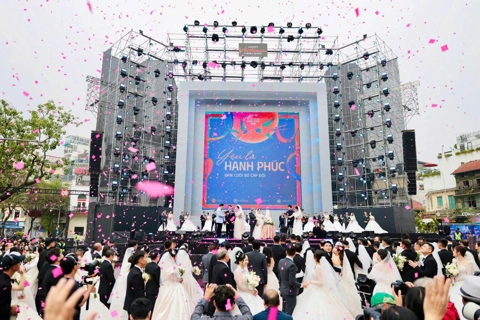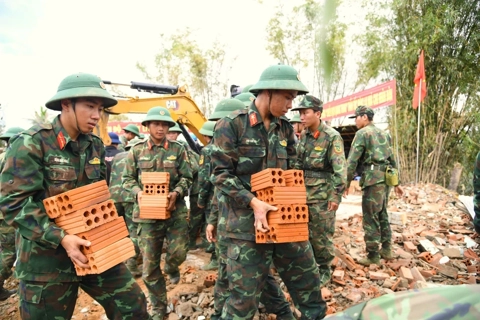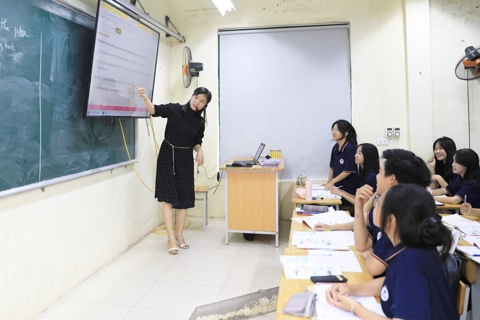Social Affairs
Hanoi moves to handle mounting domestic solid waste
Apr 17, 2019 / 10:04 AM
To have a better living environment, Hanoi requires fundamental measures to eliminate plastic waste, especially calling people to refrain from using plastic items.
Hanoi city has issued a plan to manage and handle solid waste, including plastic waste, to prevent plastic waste and protect the environment, according to media reports.
Accordingly, Hanoi focused on collecting, transporting and treating domestic waste in the districts and towns in 2018 and the first three months of 2019.
The Hanoi City People's Council will supervise the progress of implementing projects on domestic solid waste treatment plants, projects to support technical and social infrastructure in the affected area by the waste treatment area operating in the city.
Combating plastic waste to protect environment
Hanoi is making effort, together with the whole country, to prevent plastic waste. Currently, plastic items and bags are present in consumption habits.
Plastic and nylon products bring convenience, but at the same time cause great damage to the environment and human health. Besides, nylon waste, when burnt, produces emissions containing dioxin and furan, which are toxic substances with long-term survival in the environment.
A United Nations showed that Vietnam ranks 17 out of 109 countries with the highest levels of plastic waste pollution in the world by 2018.
Hanoi dumps 4,000 to 5,000 tons of waste daily, of which plastic waste accounts for 7-8%. Especially, nylon waste increases each year and poses a long term risk to the capital’s living environment.
Hanoi's current technology in treating waste disposal is mostly burial or burning. Therefore, to have a better living environment, the city requires fundamental measures to eliminate the use of plastic waste, especially calling on people to limit using plastic items.
Recently, some supermarkets in Hanoi, Da Nang and Ho Chi Minh City substitute plastic bags with banana leaves to pack. Vietnam’s Prime Minister Nguyen Xuan Phuc praised this move, saying it is a practical way to phase out the use and disposal of plastic waste into the environment.
Accordingly, Hanoi focused on collecting, transporting and treating domestic waste in the districts and towns in 2018 and the first three months of 2019.

Plastic waste everywhere in Trieu Khuc village, Tan Trieu commune, Thanh Tri district of Hanoi. Photo: Manh Khanh
|
Combating plastic waste to protect environment
Hanoi is making effort, together with the whole country, to prevent plastic waste. Currently, plastic items and bags are present in consumption habits.
Plastic and nylon products bring convenience, but at the same time cause great damage to the environment and human health. Besides, nylon waste, when burnt, produces emissions containing dioxin and furan, which are toxic substances with long-term survival in the environment.
A United Nations showed that Vietnam ranks 17 out of 109 countries with the highest levels of plastic waste pollution in the world by 2018.
Hanoi dumps 4,000 to 5,000 tons of waste daily, of which plastic waste accounts for 7-8%. Especially, nylon waste increases each year and poses a long term risk to the capital’s living environment.
Hanoi's current technology in treating waste disposal is mostly burial or burning. Therefore, to have a better living environment, the city requires fundamental measures to eliminate the use of plastic waste, especially calling on people to limit using plastic items.
Recently, some supermarkets in Hanoi, Da Nang and Ho Chi Minh City substitute plastic bags with banana leaves to pack. Vietnam’s Prime Minister Nguyen Xuan Phuc praised this move, saying it is a practical way to phase out the use and disposal of plastic waste into the environment.








